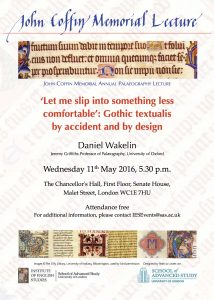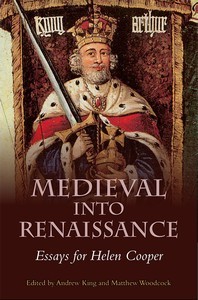The next colloquium organized by the Magdalene Medievalists’ Society will take place on Tuesday 17 May at 6 pm at the Parlour, First Court, Magdalene College. We will be addressed by Dr Jordi Sanchez-Marti (University of Alicante) on the subject of:
‘The English Early Printers and Medieval Romance from a Continental Perspective’
The abstract for the talk is as follows:
The first book printed in English is a romance, namely the Recuyell of the histories of Troy, which significantly was published not in England but on the Continent. Originally composed in French by Raoul Lefèvre, the Recuyell was both rendered into English and printed by William Caxton in Flanders in ca. 1473. All the romances printed by Caxton were in prose and, except for Malory’s Morte Darthur, originated on the Continent. The predominance of the printed prose romances in England during the incunabular period can be regarded as an imposition of a
foreign literary fashion and a departure from the English romance tradition in the manuscript period, when verse was preferred to prose. To what extent did Caxton’s residence on the Continent determine the type of romance texts that obtained printed distribution in English?
Were the early English printers following developments on the Continent, or were they instead shaping European romance printing? Did the early English printers participate in the creation of a European canon of romances? Using the tools of enumerative bibliography, this paper hopes
to improve our understanding of romance printing in English by placing this commercial and literary activity in its European context and comparing it to continental printing trends.
Dr Jordi Sánchez-Martí is a senior lecturer in English Literature at the University of Alicante. The main focus of his research has been the study of the romance genre in late medieval England, with a particular interest in the transition of the Middle English verse romances from manuscript to print. His research on this topic has appeared in journals such as Modern Philology, Neuphilologische Mitteilungen, and Word & Image. More recently he has considered the publication of Iberian chivalric romances in early modern England and is currently finishing a critical edition of Anthony Munday’s Palmerin d’Oliva (1588), to be published in the Medieval and Renaissance Texts and Studies series from the University of Arizona.
As usual, we will be having dinner with the speaker at a local restaurant after the talk. Please let us know if you would like to join via email to mms@magd.cam.ac.uk.

